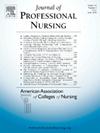Using the Ottawa Model for Nursing Curriculum Renewal to align a baccalaureate nursing program with the 2021 AACN Essentials
IF 2.9
3区 医学
Q1 NURSING
引用次数: 0
Abstract
There is an urgent call to transform nursing education in response to evolving changes in healthcare. It is critical that nursing graduates are prepared to thrive and deliver care in complex environments to increasingly diverse populations. This article describes a nursing school's approach to achieve these goals and presents details of work completed during the early phases of curriculum revision to integrate the American Association of Colleges of Nursing's (AACN's) 2021 publication, The Essentials: Core Competencies for Professional Nursing Education, into the baccalaureate programs. The Ottawa Model for Nursing Curriculum Renewal was utilized to structure this process into three phases: preparatory, active, and evaluation. The preparatory phase focused on creating structure, establishing leadership, defining goals, setting a clear timeline, engaging faculty and stakeholders, conducting needs assessments, and identifying improvement areas. The active phase is still in progress and has centered on the following: finalize goals and priorities, assess current curriculum, plan and make changes, seek approval for changes, and plan and implement curriculum revisions. Evaluation, initiated early, will continue through implementation and conclude with a comprehensive assessment to ensure effective adoption of the Essentials. Examples of lessons learned thus far include the importance of sustained faculty and stakeholder engagement, practice partner collaboration, continuing education, and ongoing evaluation. Details presented about the nursing school's initial planning processes and implementation strategies, experiences encountered, insights gained, and facilitators and barriers experienced may provide valuable guidance for other baccalaureate nursing programs embarking on a similar transformation process.
使用渥太华护理课程更新模式,使护理学士学位课程与2021年AACN要点保持一致
迫切需要改变护理教育,以应对医疗保健的不断变化。至关重要的是,护理毕业生准备好茁壮成长,并在复杂的环境中为日益多样化的人群提供护理。本文描述了一所护理学校实现这些目标的方法,并介绍了在课程修订的早期阶段完成的工作的细节,以整合美国护理学院协会(AACN) 2021年出版的《要点:专业护理教育的核心能力》,进入学士学位课程。渥太华护理课程更新模型被用来将这一过程分为三个阶段:准备、积极和评估。准备阶段的重点是创建结构,建立领导,确定目标,设定明确的时间表,吸引教师和利益相关者,进行需求评估,并确定改进领域。积极阶段仍在进行中,主要集中在以下方面:确定目标和优先事项,评估当前课程,计划和修改,寻求批准更改,计划和实施课程修订。早期开始的评估将在实施过程中继续进行,并以全面评估结束,以确保有效采用要点。到目前为止吸取的经验教训包括持续的教师和利益相关者参与、实践伙伴合作、继续教育和持续评估的重要性。详细介绍护理学校的初步规划过程和实施策略,遇到的经验,获得的见解,以及经历的促进因素和障碍,可能为其他本科护理课程开始类似的转型过程提供有价值的指导。
本文章由计算机程序翻译,如有差异,请以英文原文为准。
求助全文
约1分钟内获得全文
求助全文
来源期刊
CiteScore
4.80
自引率
8.00%
发文量
153
审稿时长
52 days
期刊介绍:
The Journal will accept articles that focus on baccalaureate and higher degree nursing education, educational research, policy related to education, and education and practice partnerships. Reports of original work, research, reviews, insightful descriptions, and policy papers focusing on baccalaureate and graduate nursing education will be published.

 求助内容:
求助内容: 应助结果提醒方式:
应助结果提醒方式:


